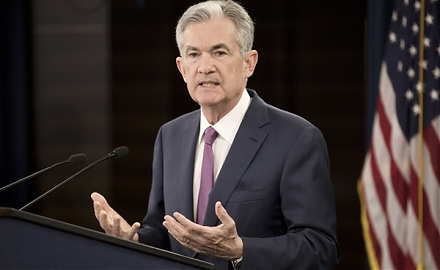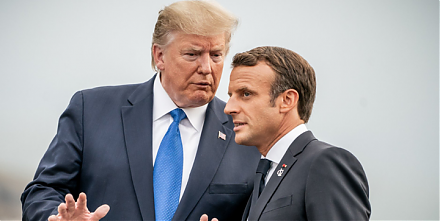

2018-07-19 18:38:00 Thu ET
federal reserve monetary policy treasury dollar employment inflation interest rate exchange rate macrofinance recession systemic risk economic growth central bank fomc greenback forward guidance euro capital global financial cycle credit cycle yield curve
Goldman Sachs chief economist Jan Hatzius proposes designing a new Financial Conditions Index (FCI) to be a weighted-average of interest rates, exchange rates, stock prices, and credit spreads. Each weight corresponds to the direct marginal contribution of each macro variate to real GDP economic growth. Hatzius amends a New Keynesian macroeconomic model to embed an FCI in a Taylor monetary policy rule that induces the central bank to ease the FCI when either inflation or employment falls below mandate-consistent thresholds. This macroeconometric analysis suggests an FCI-driven policy rule for maintaining the neutral interest rate that better contains inflation near full employment.
The Trump administration's chief economic advisor Larry Kudlow engages in a hot and healthy debate with several economists who warn of an economic recession that might arise from the Sino-American trade war with higher U.S. budget deficits and tax cuts. Kudlow advocates the optimistic outlook for the U.S. economy in light of both robust employment and 3.5%-4% real GDP growth in mid-2018. Moreover, Kudlow even emphasizes that the current U.S. economic boom may continue until 2022-2024.
In contrast, some other eminent economists such as Mark Zandi (Moody's chief economist) and Ken Griffin (Citadel CEO) are less optimistic about the current U.S. economic boom. Zandi shares his fresh insight that the Federal Reserve continues its interest rate hike to dampen inflationary pressure until a recession occurs early in the next decade. Griffin considers a murkier outlook that the Trump tax cuts may have pulled forward both consumer and business demand.
The current economic boom is the second-longest in U.S. history and thus may or may not sustain in the next decade. Treasury Secretary Steve Mnuchin reiterates America’s long-term credible commitment to maintaining a strong greenback with minimal risk of a currency war. In accordance with Mnuchin's recent remarks after the G20 summit of finance ministers, Mnuchin needs to dismiss the arcane idea of U.S. dollar intervention.
On balance, the U.S. Treasury and Federal Reserve can consider the new FCI in order to make better and wiser economic policy decisions.
If any of our AYA Analytica financial health memos (FHM), blog posts, ebooks, newsletters, and notifications etc, or any other form of online content curation, involves potential copyright concerns, please feel free to contact us at service@ayafintech.network so that we can remove relevant content in response to any such request within a reasonable time frame.
2019-01-08 17:46:00 Tuesday ET

President Trump forces the Federal Reserve to normalize the current interest rate hike to signal its own monetary policy independence from the White House.
2017-11-13 07:42:00 Monday ET

Top 2 wealthiest men Bill Gates and Warren Buffett shared their best business decisions in a 1998 panel discussion with students at the University of Washin
2019-09-21 09:25:00 Saturday ET

President Trump praises great unity and progress at the G7 summit with respect to Sino-U.S. trade conflict resolution, global climate change, containment fo
2017-03-03 05:39:00 Friday ET

As the biggest IPO since Alibaba in recent years, Snap Inc with its novel instant-messaging app SnapChat achieves $30 billion stock market capitalization.
2023-10-07 10:24:00 Saturday ET

Thomas Philippon draws attention to greater antitrust scrutiny in light of the rise of market power and its economic ripple effects. Thomas Philippon (20
2025-08-02 13:31:00 Saturday ET

Chip Espinoza, Mick Ukleja, and Craig Rusch shine fresh light on the core competences for managing millennials as part of the new modern workforce in recent